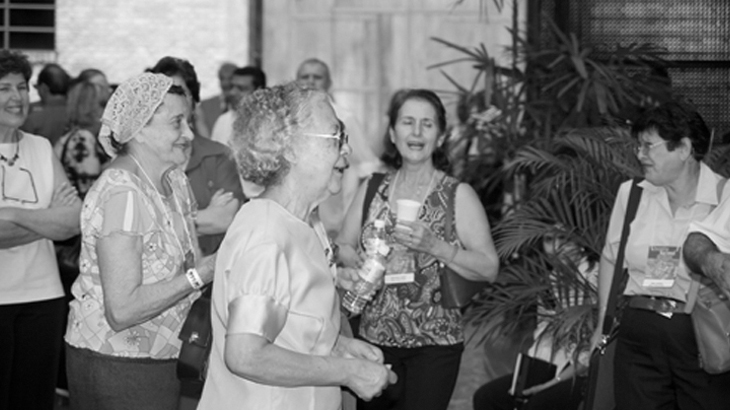Postado em
Velhice e Assistência Social no Brasil

JANAÍNA CARVALHO DA SILVA (*)
RESUMO
Este artigo tem por objetivo reconstruir a trajetória da Assistência à pessoa idosa no Brasil, destacando o Programa de Apoio ao Idoso, a Lei Orgânica da Assistência Social e a Política Nacional do Idoso. A análise dessas políticas é fundamental, pois não há dúvidas de que os idosos obtiveram expressivos direitos, desde a Constituição de 1988 – embora ainda seja pouco o que vem sendo efetivamente realizado. É um fato preocupante, já que o Brasil tem a perspectiva de ser o 6o país mais envelhecido do mundo até 2025, de acordo com projeções da Organização das Nações Unidas (ONU). A ampliação das ações de apoio ao segmento idoso, garantida na Política Nacional do Idoso, não está acontecendo devido a um complexo de variáveis que se entrelaçam, entre elas os reduzidos recursos financeiros. O único programa efetivamente implementado na maioria dos municípios é o Programa de Apoio ao Idoso, mas com renda per capita mínima por idoso assistido e sem aumentar essa meta há anos; com um número reduzido de profissionais, em geral sem conhecimento na área de Gerontologia e Geriatria; sem um planejamento participativo e transparente de todas as suas ações e seus respectivos orçamentos; sem estrutura condizente para o desenvolvimento de um programa de qualidade, capaz de proporcionar a efetivação de um processo de construção da cidadania. Assim, podemos afirmar que, apesar de todos os avanços legais conquistados, atendemos apenas a uma pequena parcela da população idosa e, dela, apenas os que têm autonomia física e mental para ir e vir, já que as ações de apoio propostas pela Política Nacional do Idoso ainda são apenas um ideal.
Palavras chave: envelhecimento. Programa de Apoio a Pessoa Idosa. Lei Orgânica de Assistência
Social. Política Nacional do Idoso.
ABSTRACT
The objective of this article is to trace the trajectory of the attendance for the elderly in Brazil, emphasizing the Program of Support to the Elderly, the Organic Law of the Social Assistance and the National Politics of the Aged One. The analysis of these policies is fundamental because there is no doubt that since the 1988’s Brazilian Constitution the aged ones have gotten significant rights. However, little has been effectively carried through, a preoccupying fact because, according with the United Nations (UN), we already have perspectives of being the 6th country with most aged people of the world in 2025. The improvement of the support actions to the aged segment guaranteed in the National Politics of the Aged One isn’t happening because of a complex set of variables, besides meager financial resources. The program that effectively has been implemented in the majority of the cities is the Program of Aged Support, but with minimum per capita for senior citizens attended and without increasing its goal for years, for several reasons: the small number of professionals, which in their majority do not have knowledge in Gerontology and Geriatrician; the lack of planning for the actions and for the respective financial resources in a participatory and transparent form; the absence of a harmonic structure with the development of the program with the quality and conditions capable to provide the effective process to consolidate old aged people’s citizenship. Thus we can affirm that, although all legal advances, we still take care of a small part of elderly people, and between these, only the ones that possess mental and physical autonomy, since the Aged National Politics’ support proposals actions are not a real fact yet.
Keywords: aging. Program of Support to the Elderly. Organic Law of the Social Assistance .
National Politics to the Aged One.
(*) Assistente Social. Mestre em Política Social pela UnB. Docente da Universidade Federal de Mato Grosso. Coordenadora do Núcleo de Organização e Estudos da Terceira Idade NOETI.





